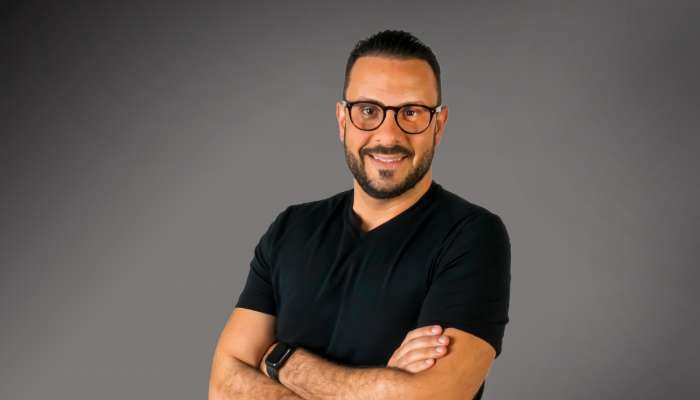
At a time when sustainability has shifted from a “nice-to-have” to a business imperative, leaders across MENA are rethinking how to balance growth with long-term impact. Few people have been closer to this transformation than Monaem Ben Lellahom, Co-founder and Group CEO of Sustainable Square. With over 20 years in ESG and climate strategy, he has advised governments, corporations, and regulators across nine countries, while also building one of the region’s most innovative sustainability firms, blending advisory expertise with AI-powered tech solutions.
Gulf Leaders Circle & Times of Oman had the opportunity to meet Monaem at the MEIRA Annual Conference 2025 in Muscat, to explore the progress he sees in the region, the balancing act of oil reliance and green transition, the global backlash against ESG, and how his company is helping businesses stay ahead of the curve.
Q: You’ve been instrumental in driving ESG and sustainability initiatives across the region. From your perspective, what progress are you most encouraged by in MENA when it comes to businesses embracing sustainable practices?
Monaem Ben Lellahom: What impresses me most is the maturity we’re now seeing across the region. The private sector is increasingly and voluntarily embedding ESG and climate practices into core operations, involving boards and top management in the process. Regulators are also catching up, mandating disclosure and reporting requirements that push the agenda further.
For example, the UAE recently introduced a new climate mandate, showing how quickly the region is aligning with global best practices. Across the Middle East, momentum is building toward a greener future—one that helps decarbonize economies while staying true to the net-zero commitments made by GCC countries.
Q: The Middle East faces the dual challenge of being heavily reliant on oil while also investing in green initiatives. From your perspective, what’s the realistic pathway for the region to transition sustainably without slowing growth?
Monaem Ben Lellahom: The GCC is committed to decarbonization, but the reality is we are still highly dependent on oil and gas. Abandoning trillions of dollars’ worth of assets in the desert and the sea simply isn’t an option. Instead, the strategy is to maintain oil production while building parallel alternative markets that support decarbonization goals and net-zero commitments.
The region is moving gradually but decisively. Importantly, policymakers are avoiding “regulation fatigue.” This ensures that while the sustainability agenda advances, economic growth and private sector resilience are not compromised.
Q: In some markets, ESG has faced a backlash—accused of being more about box-ticking or politics than real impact. From your experience, how do you cut through that noise and ensure sustainability truly drives business value?
Monaem Ben Lellahom: Globally, ESG is under political pressure. We see certain jurisdictions rolling back commitments, but at the same time, new opportunities are emerging. In the US, for instance, despite political headwinds, green exchanges are thriving and creating fresh opportunities for companies performing well on ESG metrics.
So yes, ESG is at a crossroads, but the overall direction is forward. In the Middle East, the momentum remains strong. Regulations are becoming more robust, private sector players are committing more deeply, and the region is pushing ahead with its own frameworks to ensure ESG translates into real value.
Q: Sustainable Square has grown into a hybrid firm that blends strategic advisory with AI-powered sustainability tech. How does this approach help MENA businesses tackle complex ESG challenges more effectively than traditional models?
Monaem Ben Lellahom: Our clients challenged us to innovate, and that’s what drove us to pioneer the use of AI in sustainability. We were the first to develop an algorithm capable of auto-drafting sustainability reports, transforming raw ESG data into meaningful narratives.
That innovation evolved into our platform, Squarely, which automates multiple aspects of the sustainability process—auto-drafting, auto-design, auto-translation, and soon, even auto-assurance. By leveraging AI, we make ESG reporting faster, more cost-efficient, and more accurate, freeing managers to focus on strategy rather than paperwork.
This model not only helps businesses in MENA meet disclosure requirements but also pushes them ahead of the curve globally.